Energy Benchmarking
Energy benchmarking is the practice of measuring building energy use against peers or past performance to identify inefficiencies and boost value.

September 30, 2025
What is Energy Benchmarking?
Energy benchmarking is the process of measuring a building’s energy performance against historical data or peer properties. It typically uses standardized tools and weather normalization to ensure comparability. Benchmarking highlights inefficiencies, tracks progress toward sustainability goals, and informs decisions about retrofits, certifications, and operating budgets.
Why Energy Benchmarking Matters in Real Estate
Energy benchmarking matters in real estate because it provides owners, managers, and investors with critical data about operating costs, environmental impacts, and regulatory compliance. Many jurisdictions require annual benchmarking disclosures. Strong performance can improve asset value, attract tenants, and qualify for incentive programs.
Example of Energy Benchmarking in Action
An office building completes energy benchmarking and discovers plug loads are significantly higher than peers. Management launches a tenant engagement program and lighting retrofit, cutting energy use by 18% year-over-year.
Key Takeaways
- Benchmarking identifies inefficiencies and informs retrofits.
- Mandatory in some cities for compliance.
- Supports sustainability certifications and goals.
- Improves marketability and asset value.
- Provides data to track ROI of upgrades.
Related Terms
- Sustainability
- Utility Cost
- Green Building Certification
- Retrofit
- Operating Costs


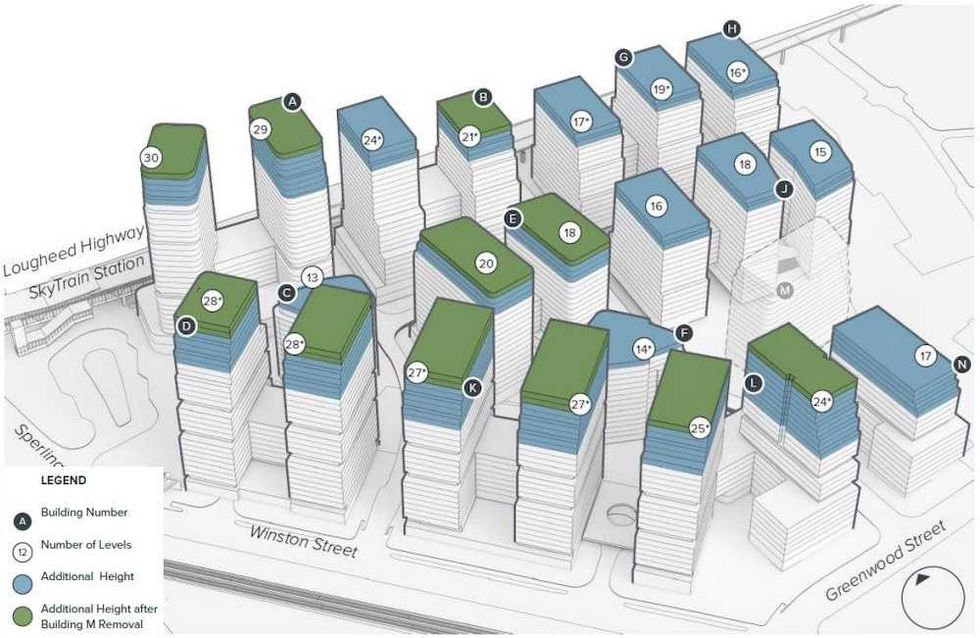 Building height changes from the previous master plan apllcation. (Peterson)
Building height changes from the previous master plan apllcation. (Peterson)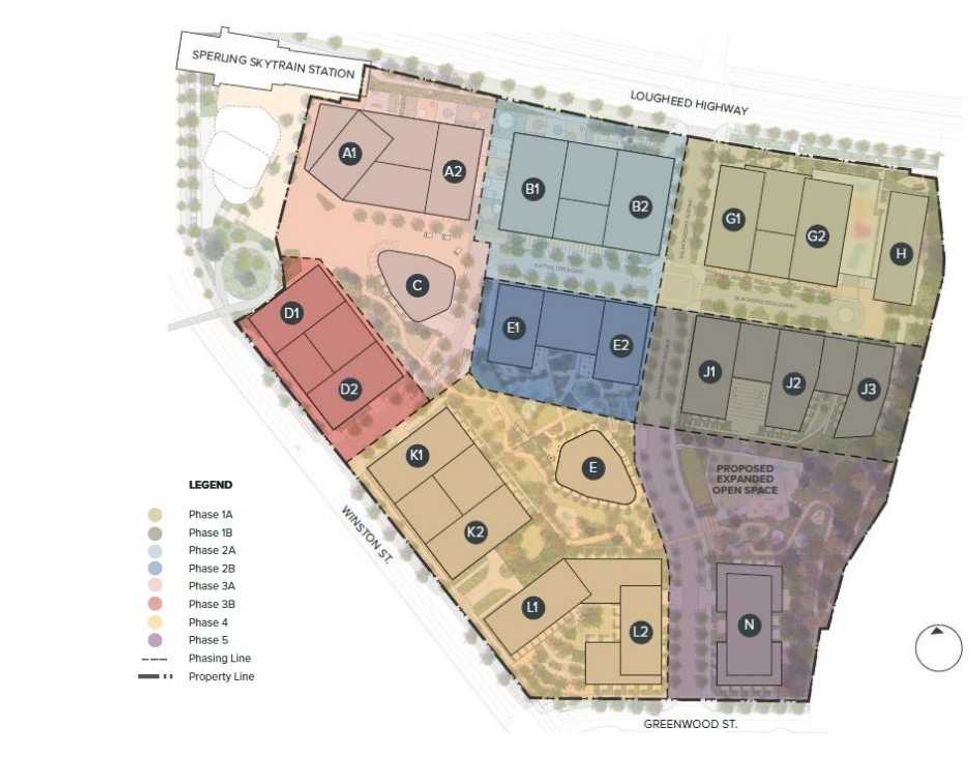 An overview of Blake Village and the phasing plan. (Peterson)
An overview of Blake Village and the phasing plan. (Peterson)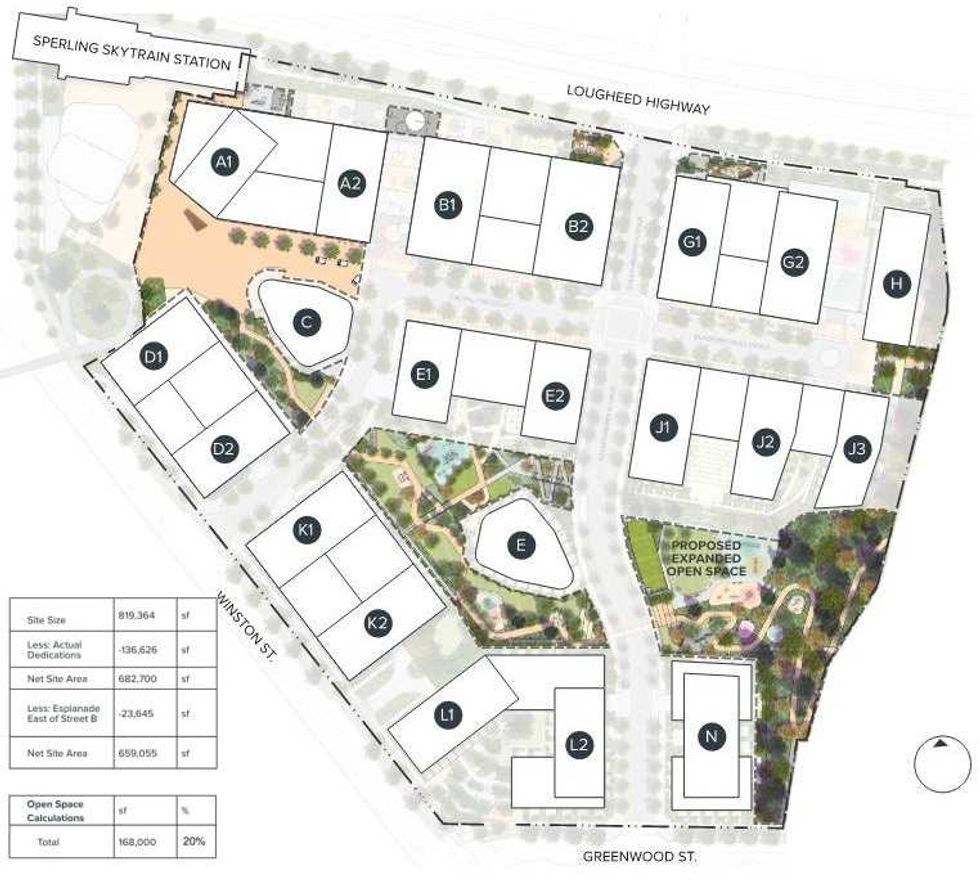 An overview of Blake Village and planned open space. (Peterson)
An overview of Blake Village and planned open space. (Peterson)

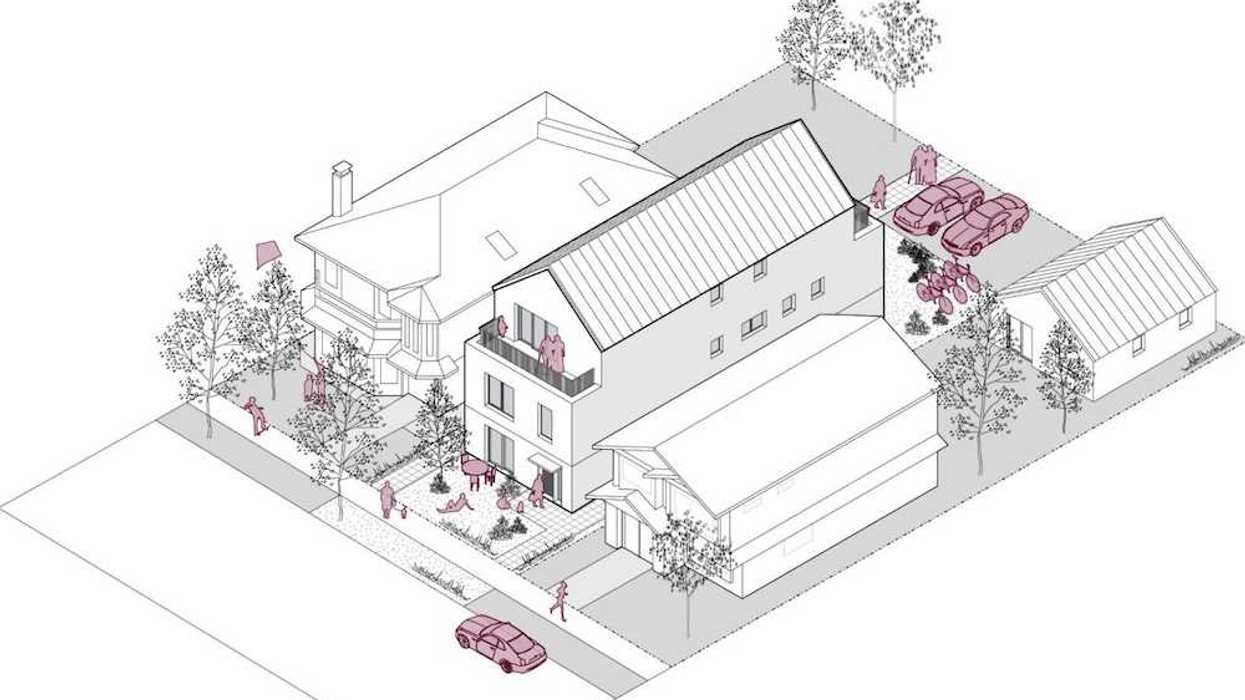







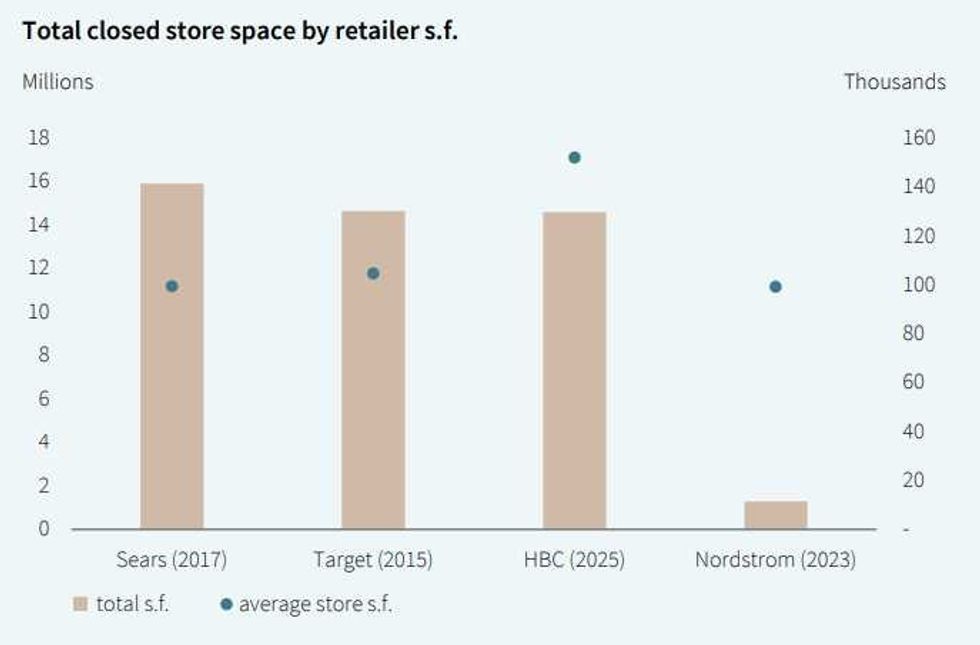 Hudson’s Bay vacated about as much space as Target did in 2015. (JLL)
Hudson’s Bay vacated about as much space as Target did in 2015. (JLL)

 A rendering of Frame in East Vancouver. (Peterson)
A rendering of Frame in East Vancouver. (Peterson) The Tesla facility set for 908 Raymur Avenue in Vancouver. (Beedie)
The Tesla facility set for 908 Raymur Avenue in Vancouver. (Beedie) Phase One of Sen̓áḵw in Summer 2025. (OPTrust, Nch’ḵay̓)
Phase One of Sen̓áḵw in Summer 2025. (OPTrust, Nch’ḵay̓) (QuadReal Property Group, Westbank)
(QuadReal Property Group, Westbank) The two-tower Cascades project under construction in mid-2025. (Ledcor)
The two-tower Cascades project under construction in mid-2025. (Ledcor) A rendering of Perla near Central Park. (Polygon Homes)
A rendering of Perla near Central Park. (Polygon Homes) Phase One of Concord Metrotown is located at the corner of Kingsway and Nelson Avenue in Burnaby. (Concord Pacific)
Phase One of Concord Metrotown is located at the corner of Kingsway and Nelson Avenue in Burnaby. (Concord Pacific) Myriad will complete Concert Properties’ Heart of Burquitlam community. (Concert Properties)
Myriad will complete Concert Properties’ Heart of Burquitlam community. (Concert Properties) SOCO 2 (left) in Coquitlam. (Drew Powell, LinkedIn)
SOCO 2 (left) in Coquitlam. (Drew Powell, LinkedIn) King George Hub in Surrey. (Submitted by PCI Developments)
King George Hub in Surrey. (Submitted by PCI Developments)